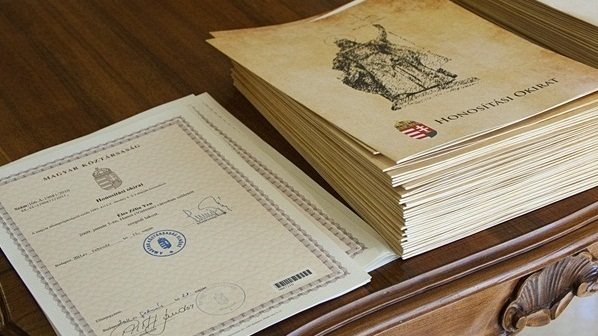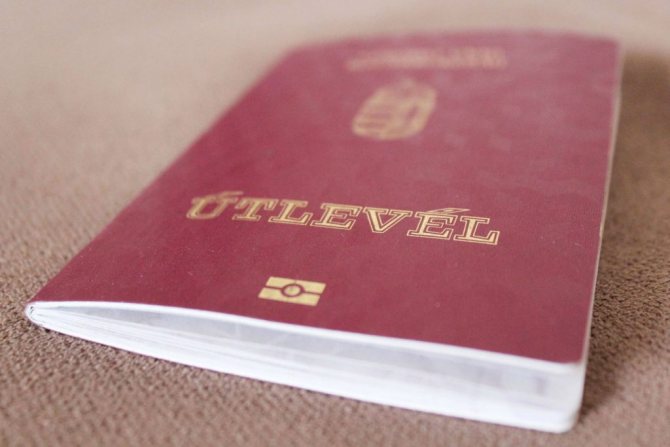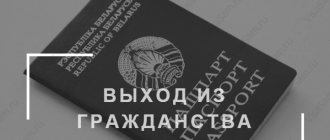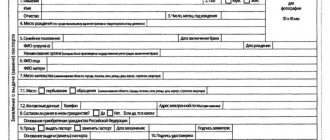What are the benefits of a Hungarian passport?
Hungary is an EU country, which means you get all the opportunities that citizens of each EU country have.
- You can be in any EU country without restrictions;
- Opportunities for visa-free travel in 141 countries of the world are open to you, including Schengen countries;
- You and your children will be able to study and officially work in almost any country in Europe without additional visas and permits;
- You will receive social protection and reliable medicine;
- Bank lending opportunities are available to you at loyal interest rates, as well as opening deposit accounts;
- You don’t have to live in Hungary; you can choose any EU country for this or stay in your homeland, having a backup option “just in case.”
How to obtain Hungarian citizenship?

It is possible to obtain citizenship in Hungary by birth, through naturalization or repatriation. There is currently no citizenship by investment program, but it is being discussed.
A child born into a family of Hungarian citizens becomes a citizen.
If you are an ethnic Hungarian who lost citizenship due to the separation of Hungarian territories, you have the right to regain citizenship. Applies primarily to those who lived in Transylvania, Southern Slovakia, in the current Transcarpathian region of Ukraine, and their descendants.
You must prove your origin through your own or archival documents. You need to search for data yourself. You won’t have to renounce your current citizenship and you won’t even need to move to Hungary.
Naturalization is common and has advantages.
In both cases, all the requirements are the same, except for the time of stay in the country (residence qualification).
Requirements for persons who decide to naturalize:
- No problems with the law;
- There is a place to live in the country;
- The person does not pose a threat to Hungary and his naturalization does not violate the laws and security of the country;
- It is necessary to pass an exam on knowledge of the Constitution and proficiency in the Hungarian language at this level.
If we are talking about standard naturalization, then the residency requirement is 8 years.
If a person was born in Hungary or became a resident of the country before reaching the age of majority, then the period of stay for obtaining citizenship is reduced to 5 years (unless the parents of the minor received citizenship earlier - then the child receives it along with them).
The following persons can obtain citizenship within 3 years:
- Who have lived in a legal marriage with a Hungarian citizen for more than 3 years; a marriage can only be terminated by the death of a spouse;
- Minor children who are Hungarian citizens;
- Who were adopted by Hungarians;
- Recognized as refugees under Hungarian law;
- They are stateless persons.
The application review period is 3 months, excluding the collection of missing or lost documents.
Is it difficult to obtain a Hungarian passport?
The Hungarian government emphasizes that this scheme is not a distribution of citizenship, but a simplified scheme for obtaining it for those who are ethnic Hungarians.
The procedure itself has been simplified and accelerated to the limit, but the initiative to obtain a Hungarian passport must in any case come from an individual.
Documents to be submitted to obtain Hungarian citizenship upon repatriation
- applicant's application form;
- international passport (foreign passport);
- birth certificate (of the person applying for citizenship);
- marriage and/or divorce certificate. This is only necessary if the woman’s last name was changed during marriage, but it is better to prepare everything in advance;
- birth or death certificates of parents, in some cases – also their marriage and/or divorce certificate;
- children's birth certificates. If you want to immediately obtain citizenship for your children;
- digital photograph of the applicant.
Document requirements
All documents for which you made a request through the registry office will be issued to you in the official language of the country in which this institution is located.
In order to send these documents to Hungary, it is necessary to make a notarized translation into Hungarian.
Please note: if you submit false certificates and documents, you will be subject to criminal prosecution. Do not start the process if you are not sure of the authenticity of the documents, as the consequences will not be long in coming. It is better to pay attention to the State Investment Program of Hungary or obtain Hungarian citizenship through naturalization.
5
Law “On Citizenship”, action and reaction
- Published by: Laszlo
- Date: 2021.01.20, 13:30
- 105

Obtaining Hungarian citizenship is regulated by the Citizenship Law, which was adopted back in 1993. The Hungarian citizenship law is based on the principles of jus sanguinis. Hungarian citizenship is acquired mainly by virtue of one of the parents being of Hungarian origin, or by naturalization (a child whose at least one parent is a Hungarian citizen, regardless of the child's country of birth). The fact of birth in Hungary does not automatically provide citizenship. Exceptions include children born to unknown or stateless parents. Hungarian citizenship by naturalization
Hungarian citizenship can be obtained by naturalization if the following conditions are met: - Eight years of continuous residence in Hungary, - Stable livelihood, - No criminal record, - Passing the Constitutional Fundamentals Test.
Persons over 65 years of age or older, as well as persons with disabilities and holders of Hungarian diplomas may be exempt from taking the Hungarian Constitution knowledge test. Hungary's motives are simple, because the territory of Transcarpathian Ukraine was Austro-Hungarian land in the pre-war years. The Hungarian government approved a migration program with the aim of increasing the size of the Hungarian population at the expense of the descendants of Hungarians who lived in Ukraine before 1920 and from 1939 to 1945. On June 4, 1920, in the Grand Trianon Palace of Versailles, the Trianon Peace Treaty was signed between the Entente countries - the winners of the First World War and Hungary, which fought on the defeated side. The treaty fixed the legal situation as a result of which Hungary lost 2/3 of its territory with a population of up to 3 million ethnic Hungarians. For the country it was a time of national tragedy. The Treaty of Trianon was in 1938-41. revised, which allowed Hungary to regain part of the lands lost in 1920: the north of Romania, the south of Slovakia and Transcarpathia. The Second World War again made its adjustments to the territories, but with the help of the Soviet Union, taking away part of the Hungarian lands, in particular the north of Romania, the south of Slovakia and Transcarpathia. Hungary currently exists within the borders defined by the Treaty of Trianon, and beyond them - in Romania, Slovakia, Austria, Vojvodina and Transcarpathia there remain significant Hungarian national minorities. In particular, more than 150,000 people live in the Transcarpathian region of Ukraine - descendants of former subjects of the Hungarian crown, whose ancestors, without moving from their place, without personal initiative and special formalities, were forced to frequently change their citizenship. The Soviet Union, having arrived here, the first thing it had to formally do was issue a Decree of the Presidium of the Supreme Soviet of the USSR on depriving the citizens of Transcarpathia of Hungarian, Czechoslovak, Romanian, and Polish citizenship. But no one did this; everyone was immediately accepted as citizens of the USSR. 1991 brought another additional citizenship for residents of Transcarpathia. The passport of a citizen of the USSR was simply stamped “Ukraine”; otherwise, the document was recognized as legal. According to the Ukrainian census data in 2001, 155 thousand people registered as Hungarians in Transcarpathia. But according to expert estimates, in reality there are much more representatives of the Hungarian national minority, both then and now, in the region. Many changed their place of residence as a result of natural migration. Almost ten years ago, many were afraid to register as Hungarians, not knowing what it might entail for them; many for whom Hungarian was the language of communication of their parents were registered as Ukrainians at the registry office. On May 31, 2010, the Hungarian Parliament adopted a draft Law (authored by Zsolt Semjon and Laszlo Kever), according to which June 4, the anniversary of the Treaty of Trianon, is proclaimed as “Day of National Solidarity.” 302 deputies voted for the draft Law. In the adopted law, the authors called the Treaty of Versailles, signed 90 years ago, “the greatest tragedy of the Hungarian people” and expressed the need to negotiate on all conflict positions arising today from the Treaty of Trianon (Versailles). The legal norm of the document declares that “all members and all communities of Hungarians who were plunged into bondage by neighboring states are part of a single integral Hungarian people, whose solidarity knows no boundaries. At the same time, this solidarity of theirs is an element of their personal and social identification.” Within the framework of international law, I consider the grounds for granting the right of citizenship to Hungarians to be quite justified. The initiators also note that in the Hungarian legal field, a decision on a simplified procedure for granting citizenship already took place in 1886 in the case of “Changa” - at that time these were ethnic groups scattered in the territories of modern Moldova and Romania, outside the territory of the former Hungary, which spoke Hungarian. On May 26, 2010, the Hungarian Parliament approved amendments to the Citizenship Law. The changes came into force on January 1, 2011. The new provision of the law regulates the “abolition of the requirement of compulsory residence and income in Hungary, if knowledge of the Hungarian language is tested and somehow established.” Naturalization of citizens occurs from the following conditions
.
— The conditions for ordinary naturalization contain more limited requirements for public control. Accordingly, a foreign citizen of non-Hungarian origin can be naturalized upon application if he does not pose a threat to public order and national security of the Republic of Hungary. This wording replaced the previous wording: “threat to the interests of the state” in the previous version of the law. — Preferential naturalization will be offered to foreign citizens who had a Hungarian citizen ancestor or whose origins from Hungary are probable, and if they have proven knowledge of the Hungarian language. It should be noted here that for 90 years (1920 – 2011) in the long-suffering land of Transcarpathia, “the official languages were Hungarian, Czech, Russian, Ukrainian. Every resident of this territory is forced to study and teach children the spoken language of the “current government” over the years. The applicant must also fulfill two other requirements.
The first is to have a police clearance certificate from your country of residence, and also not to have any legal proceedings in Hungary.
Secondly, his naturalization should not pose a threat to public order and national security of the Republic of Hungary. Consequences of the amendment to the Law - unlike ordinary naturalization, residence in Hungary and proof of sources of income in Hungary will not be required. There will also be no requirement to pass a test on knowledge of the Constitution. Moreover, proof of Hungarian language proficiency will not be required from persons with incapacitated or disabled persons. Such applicants (minors or with disabilities) may submit their application for naturalization without accompanying it with text or a certificate confirming their knowledge of the Hungarian language. Knowledge of the Hungarian language
The regulation of the fact of knowledge of the Hungarian language is spelled out in the document vaguely, and in no way regulates the creation of conditions for the development and improvement of the Hungarian language among citizens - descendants of the Hungarian crown.
For some reason, 5 years after the adoption of the amendment to the Citizenship Law, the Hungarian Government adopted a punitive and repressive trend against “new Hungarian citizens” - deprivation of citizenship for lack of “good knowledge of the language.” Of course, naturalization applicants speak a limited, everyday level of the Hungarian language, which is sufficient for communication in a family of ethnic Hungarians living abroad. Indeed, due to political circumstances, they had to study Czech, Russian, Ukrainian, Romanian. However, the Hungarian authorities did nothing to adapt them to the new environment. An instructive example is the state of Israel, where every repatriate is given the opportunity to learn or improve the language for free, and to understand the legislative field of the state. This does not exist in Hungary, just as there are no state programs for the development of language and culture. Moreover, when communicating in government agencies or customs, they hear about their “inferiority”, and often speak in various local dialects, which are not spelled out in textbooks on the Hungarian language. For example, a border guard or customs officer allows you to use “slang” in a conversation. However, the descendants of former subjects of the Hungarian Crown wish to obtain their legal right of naturalization. As a rule, these are young people with work experience, diplomas from educational institutions, who are ready to work and create wealth in the country of their ancestors. They often buy housing and create strong Hungarian families. Analyzing information about the needs of workforce www.profession.hu/ the country needs IT specialists and engineers. For example, the Secretary of Hungary, responsible for national policy in the Hungarian government, Arpad Janos Potap, reported that as of mid-2015, 94 thousand residents of the Transcarpathian region received Hungarian citizenship through a simplified procedure. Do the state of Hungary, which is experiencing a serious demographic decline, need these people? Judging by the latest actions, the police, where the “witch hunt” began - the search for “not well-spoken Hungarians” - are not needed. The press and police report hundreds of criminal cases of deprivation of citizenship for falsification of documents and lack of good language skills. Falsification is bad and it should be noted that this problem is internal and, as a rule, created by government officials in Hungary, but a significant part of honest ethnic Hungarians prefer to leave the country, where at any moment you can be called to the police station, accused of not knowing the language or falsification, and deprived of citizenship - the reasons for deprivation of citizenship are not reported; they leave for the Czech Republic and Germany. But initially, the Hungarian Government approved a migration program with the aim of increasing the size of the Hungarian population, as mentioned above. Deprivation of Hungarian citizenship
Let's look at the provisions of the Law on Loss of Hungarian Citizenship.
Voluntary renunciation of Hungarian citizenship is permitted. Hungarian citizens who have another citizenship (two citizenships) and reside outside Hungarian territory may renounce their Hungarian citizenship. Persons wishing to renounce citizenship must submit a written application to the President of the Republic. The Embassy can provide information and assistance, but does not have the right to act for such a person. It is impossible to lose Hungarian citizenship unintentionally. The only exception applies to falsified naturalization applications. For falsification of documents - yes, lack of good knowledge of the language - no. There is a way out: to create centers for studying native speech at the state level. Paid. The state will earn more money. Renaturalization
A person who has lost Hungarian citizenship may apply and may be naturalized under the same conditions as persons of Hungarian origin. Proof of Hungarian language proficiency must be provided. The applicant must have a police clearance certificate from the country of residence and must not have any legal proceedings in Hungary. His naturalization should not pose a threat to public order and national security of Hungary.
Read us on Telegram
When using materials from the site, a hyperlink to MyHungary.Net is required!
- 100
- Category: About the country
- Return
Deadlines for obtaining Hungarian citizenship by repatriation
You submit documents for citizenship to the Hungarian Migration Service or the consulate in your country.
If everything is completed, executed and submitted correctly, it will take three to six months for your request to be processed. The decision to grant or deny citizenship is made by the Minister of Internal Affairs of Hungary.
“The Home Secretary must submit his recommendations for granting citizenship, or must issue a refusal within six months.”
– extract from the Law “On Citizenship” clause 2, section 17
Procedure for obtaining Hungarian citizenship in 2021

The Hungarian citizenship law stipulates the following procedure for obtaining citizenship:
- The applicant for citizenship must submit documents to the Ministry of Justice and Public Administration of the Hungarian People's Republic;
- Ministry employees send the prepared application to the Minister, and he, in turn, to the President, for the final decision on granting citizenship to the applicant;
- The applicant must take the oath in the presence of the local mayor or a member of the diplomatic mission abroad if he is in another country.
In the amended law of 1993, the procedure for obtaining citizenship has been significantly simplified and the waiting period for a decision is now about 3-6 months, and not more than a year, as was previously the case.
Requirements for an applicant for citizenship
As in many other European countries, the main requirement for applicants for citizenship is the absence of problems with the law and no criminal record.
Is knowledge of the Hungarian language required?
Yes. An applicant for citizenship must speak Hungarian at least at a conversational level. The only case where knowledge of the language was not required was when obtaining citizenship under the investment program, but since its validity was terminated, the Hungarian language must be taught to all foreigners who want to obtain a Hungarian passport, as well as pass an exam.
The amended law on citizenship states that language knowledge will be tested not only based on the exam results, but also at all stages of obtaining citizenship: during the submission of documents, at the oath, when exchanging a passport.
Video about the Hungarian language exam
Obtaining residence permit and permanent residence
The basis for obtaining a residence permit in Hungary can be official employment, study, marriage, etc. Provision is made for the extension of a temporary residence permit, and after a long stay in the country, the issuance of a permanent residence document.
Subsequently, after fulfilling the conditions for naturalization or other rules for acquiring citizenship, you can submit an application for obtaining Hungarian citizenship.
Collection and submission of documents
The applicant for citizenship must provide the following documents in Hungarian to the authorized employee of the Ministry:
- Application for citizenship and CV of the applicant;
- Copies of all information pages of the domestic passport of your country and a copy of the foreign passport;
- Documents that confirm kinship with Hungarians: birth certificate of one’s own, parents’, grandparents’, marriage certificate (one’s own, parents’, grandparents’);
- Two photographs measuring 3.5x4.5 cm.
The third point is observed by those citizens who obtain citizenship through repatriation.
Oath
After a positive decision has been made on conferring citizenship on a foreign person, he is officially invited to take an oath of allegiance to the Hungarian People's Republic.
The future citizen of the country must pronounce the text of the oath in Hungarian. Only after completing this event can you expect to receive a Hungarian passport.
Time frame for obtaining citizenship
The process of obtaining citizenship under the simplified procedure takes from 3 to 6 months, under the standard procedure – about a year.
How much does the official registration cost?
There is no state fee for considering an application for Hungarian citizenship.
How else can you become a resident of Hungary?
If you do not fall under the category of participants in the Repatriation Program, use another guaranteed way to obtain permanent residence in Hungary - for investment.
You will be able to obtain lifelong permanent residence in Hungary for your entire family. Including children under 18 years of age in exchange for investment in the country's government bonds. At the same time, the investments are returnable and you will get all your money back in 5 years.
The procedure for obtaining permanent residence for investors is also simplified.
- You are not required to live in Hungary or speak the language;
- The requirement to confirm the investor’s source of income has been eliminated;
- The whole family receives a residence permit in Hungary after 3 weeks and permanent residence after 6 months;
- Already in permanent residence status, you can live in any EU country 365 days a year without losing your Hungarian resident status by obtaining a residence permit in Hungary.
Obtain permanent residence in Hungary through investments
Since 2013, Hungary has created an investment program for wealthy people. Thanks to it, having invested 300,000 euros in the country’s economy, the investor receives permanent residence in Hungary in a short period of time. However, in 2016 the program became even more attractive and faster.
Previously, it was necessary to live for 6 months on a residence permit before applying for permanent residence. Now you get the status immediately.
To qualify for permanent residence in Hungary, you need to purchase bonds in the amount of 300,000 euros - this is the main investment. It is also necessary to pay a fee of 60,000 to the state. The entire procedure is carried out through special registered intermediaries.
Permanent residence is issued for a period of 5 years. At the end of the 5-year period, you will receive back the principal amount of the investment - for this you will be given a special promissory note.
The immediate period for obtaining permanent residence is 1 month, but in fact with all the preparatory stages it takes about 2-3 months.
An interesting point: you don’t have to register to be on the territory of Hungary. However, if your goal is to eventually obtain citizenship, then we strongly recommend registering with the migration service. The period is counted from the moment of registration.
Permanent residence is received not only by the main investor, but also by his spouse, children, including adults (up to 35 years old) and parents.
If you have adult children and parents, you will have to pay an additional 60,000 euros.
To obtain a residence permit, first a transaction is carried out with a company, a package of documents is drawn up at the consulate, and a permanent residence permit is issued. The company then buys the bonds directly and gives you the promissory note as proof. It will serve as a guarantor of return on investment after 5 years.
To register an investment and permanent residence, you will need your passport; family documents and evidence of relationship; evidence that the children and parents are dependent, certified; investor card; a certificate of good conduct for everyone over 14 years old, which is not older than 6 months. Plus you will have to write an autobiography using the established template.
To maintain active status, you do not need to live in Hungary 183 days a year.
However, this program is now, at the end of 2021, under big question. In 2021, the permanent residence by investment program in Hungary will either be closed or greatly changed.
What if you buy origin “by roots”?
Recently, such “services” have become popular among unscrupulous companies. This method may be much cheaper than the investment. The Internet is especially full of advertisements offering Hungarian passports for Ukrainians.
But, can you constantly live in fear that your purchase will be discovered and not only will the deal be cancelled, but you and your family will be deprived of your freedom for a long time due to criminal liability? Do you want to take a risk or would you prefer a guaranteed and legal way?









